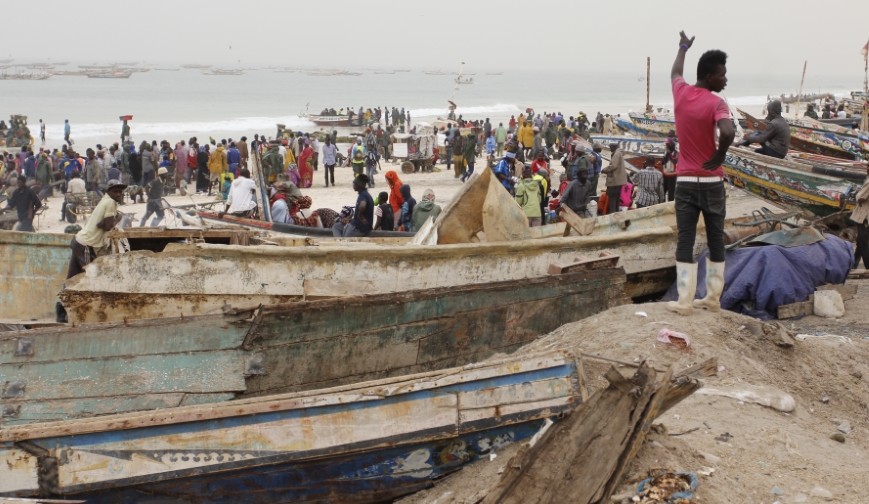Mauritania urges world to fight fishing secrecy; three more countries commit

Mauritania launches a global fisheries transparency initiative, unlocking a major obstacle to sustainable fishing; Indonesia, Senegal, and the Seychelles announce their commitment too.
Nouakchott – 3 February 2016. Mauritania launched the new Fisheries Transparency Initiative (FiTI) on Wednesday, signaling the beginning of the end for secretive fishing contracts that facilitate over-fishing all around the world.
Mauritania has some of the world’s richest fishing grounds along its 720km Atlantic coast. Like other coastal nations, it depends heavily on its fisheries for jobs, food, and nutrition. But overfishing, ecosystem damage, and climate change threaten Mauritanian and other fisheries, while repeated studies show the benefits of better management.
“Good governance constitutes an unavoidable route for Africa to exit the blatant paradox of being a continent rich in resources while numerous citizens still suffer a precarious existence,” Mauritania’s President Mohamed Ould Abdel Aziz told the audience at a one-day international conference in the Mauritanian capital to launch the FiTI officially.
Indonesia, Senegal and the Seychelles also committed to the initiative.
“The FiTI must push us to manage our resources in a better way. We must urge our partners in the EU, Russia, China, and Japan to help African countries enhance their fisheries management,” said Senegalese President, Macky Sall.“There is a lot at stake for humanity.”.
Yunus Husein, Special Staff at Indonesia’s National Task Force on Combatting Illegal Fishing, said: “Indonesia has the same commitment as Mauritania, we will implement this initiative.”
“We have been observing the FiTI since the beginning,” said Philippe Michaud, Special Adviser in the Blue Economy Department of the Ministry of Finance, Trade, and the Blue Economy, Republic of Seychelles. Together with Mauritania, Indonesia and the Seychelles, we are now delighted to officially join the process.”
The FiTI rests on two core ideas – transparency and participation – which together improve the quality of information available for discussion and the process by which management decisions are made. Collaboration between government, business, and civil society, will help build the necessary trust for responsible fisheries management too.
Peter Eigen, one of the world’s leading governance activists and first Board Chair of FiTI, welcomed the commitments from Mauritania, Indonesia, Senegal, and the Seychelles.
“This shows how urgently we need better management of our fisheries sector,” he said. “The FiTI will not fix every problem, but it will certainly be part of the solution.”
Watching long pirogues heading out to sea from a nearby beach, Barro Diop, an artisanal fisherman, said he wanted his children and grandchildren to go fishing too: “There will be generations and generations to come, we want them to have better lives than us.”